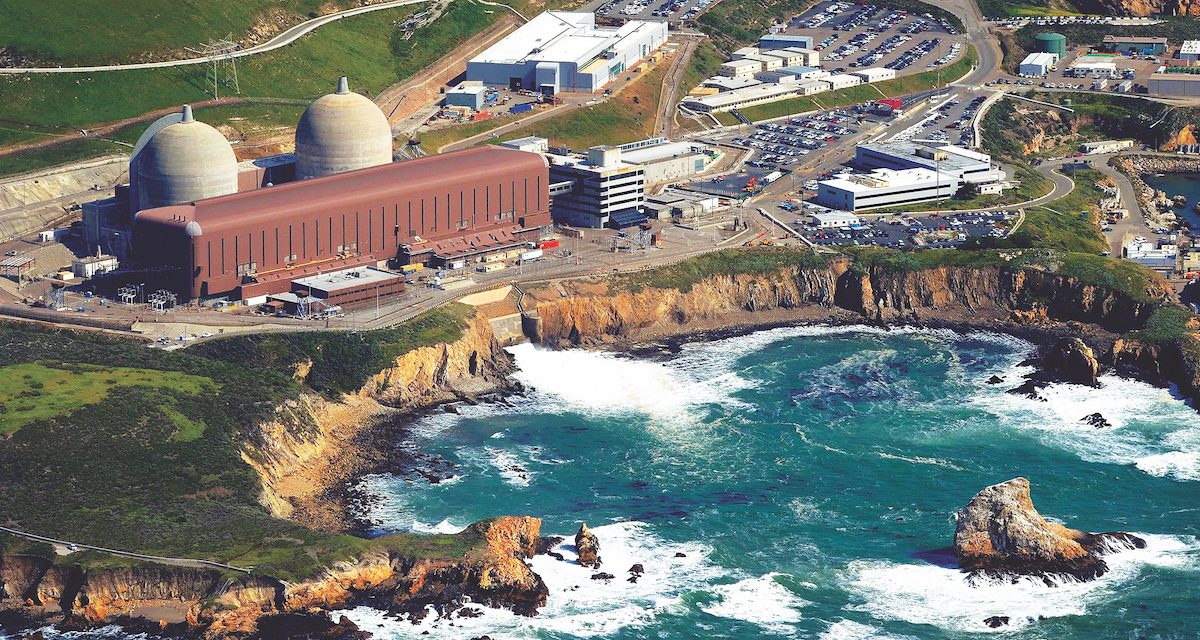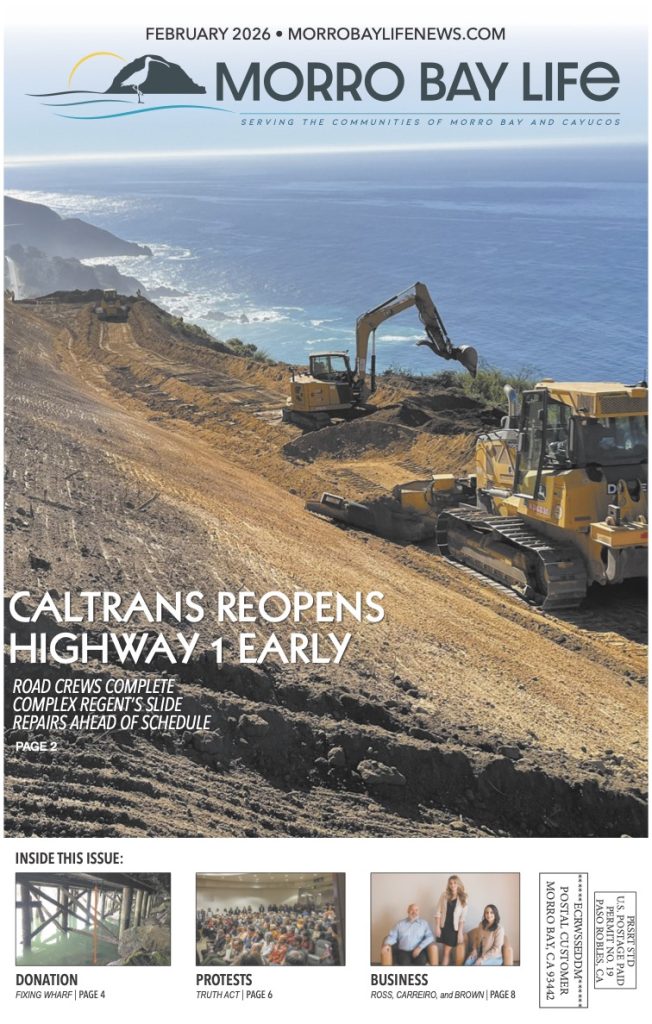The power plant awaits its relicensing from the NRC
By Blake Ashley Frino-Gerl
Last year it was acknowledged that Diablo Canyon Nuclear Power Plant would not decommission its units by 2025 but rather be relicensed through at least 2030.
Pursuing the extension of the plant’s operations is due to the California Energy Commission determining the extension will “improve statewide electric system reliability and reduce greenhouse gas emissions, while additional renewable energy and carbon-free resources come online,” according to Suzanne Hosn, Sr. Manager of Marketing and Communications at PG&E.
The Diablo Canyon Decommissioning Engagement Panel was convened by PG&E as a volunteer, non-regulatory group to engage and encourage open public communication through involvement and education. The organization is to engage with the community, and the public has taken the initiative to learn — both good and bad. The public “was informed of a crack in a weld causing a leak in the Unit 2 reactor coolant system that was discovered in October 2022 and reported to the Nuclear Regulatory Commission in December 2022,” as stated in the comment area on diablocanyonpanel.org. The website states that PG&E claims the cause of the weld defect was fatigue.
In addition to the facilities needing updates, it is within 12 miles of a fault line. If an earthquake occurs without those safety upgrades, it is unknown what ramifications could occur.
A petition was created by the Mothers For Peace, Friends of the Earth, and Environmental Working Group organizations in opposition to a timely renewal of licenses. Renewal applications are supposed to be submitted at least five years before their licenses expire. While these groups want those involved to abide by the law, they oppose the safety and environmental hazards that they see correlating with the power plant. In the petition, found at fingfx.thomsonreuters.com, it states that the NRC should not violate the law “in considering whether to grant PG&E’s request for an exemption from the timely renewal rule” because of their ineligibility due to the risks.
The petition also states that the NRC has no legal validity to give PG&E an exemption that could allow Diablo Canyon to keep running with expired federal licenses. The NRC postponed a decision on the exemptions until March, according to ewg.org. Therefore, by requiring PG&E to submit an updated and complete relicensing application, it will be rest assured that the NRC has sufficient information to reach a determination.
According to ewg.org, PG&E has admitted that the application was severely outdated and could not be updated or completed until late 2023 — a year before Unit 1 reactor license expires. Reflecting on that makes it appear that PG&E may have to close Diablo Canyon when its licenses expire in fall 2024 for Unit 1 and spring 2025 for the Unit 2 reactor. Therefore, it will stay closed until the NRC approves a new license renewal application. The NRC also acknowledged that PG&E requested an exemption from regulations that would require the reactors to shut down in 2024 and 2025 unless the licenses had been renewed by then.
In contrast, the Biden administration, along with state and federal governments, support nuclear plants for their significant source of energy to curb climate change. In November, such support was demonstrated when the U.S. Department of Energy approved funding of up to $1.1 billion to prevent closure of Diablo Canyon through a $6 billion Civil Nuclear Credit program focused at helping struggling nuclear power reactors stay open.
As of now, the United States Nuclear Regulatory Commission (NRC) still shows that the Unit 1’s license expires Nov. 2, 2024, and Unit 2 license ends Aug. 26, 2025. According to NRC Sr. Public Affairs Officer Victor Dricks, PG&E has not filed a license renewal application with the NRC.
Hosn says PG&E requested that the NRC staff resume review of the License Renewal Application (LRA) previously filed in 2009 and suspended in 2016, or issue an exemption allowing the plant to operate until the NRC completes its review of a new LRA. On Jan. 24, NRC clarified the regulatory path will be for PG&E to submit a new LRA, but will be able to leverage previous work associated with the original license renewal application.
“PG&E intends to submit a new application by the end of 2023,” Hosn says. They are developing application materials and supporting documents for the filing.
“PG&E is committed to complying with current legislative policy to ensure the State of California has the option to keep DCPP online past the current expiration date of the licenses to ensure electricity reliability as California continues toward its clean energy future,” Hosn adds. Licenses need to be renewed to keep the DCPP running, so it just appears that the clock is ticking.







